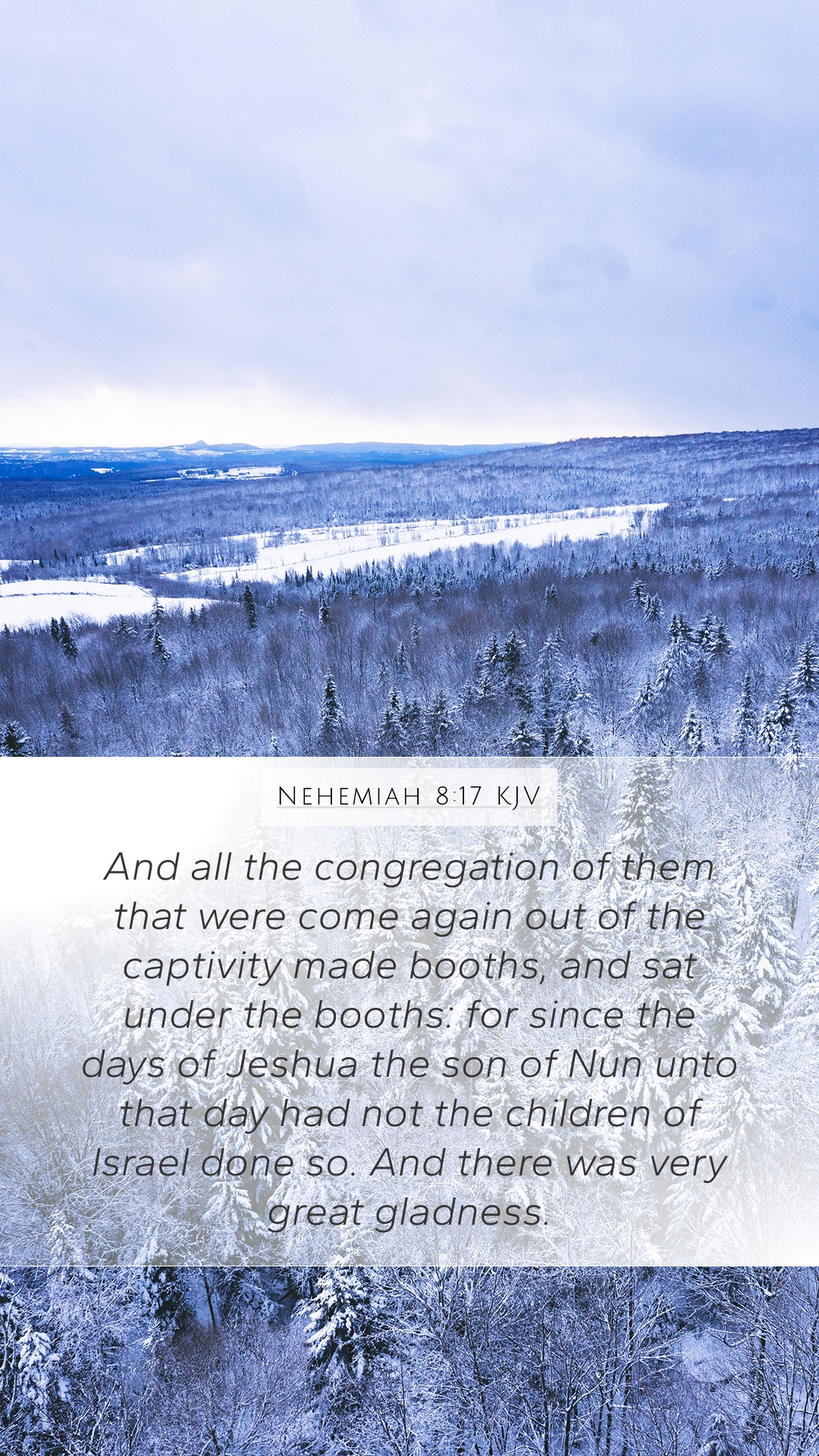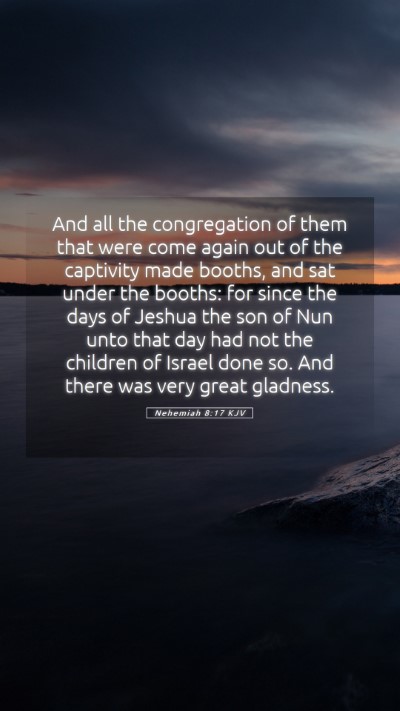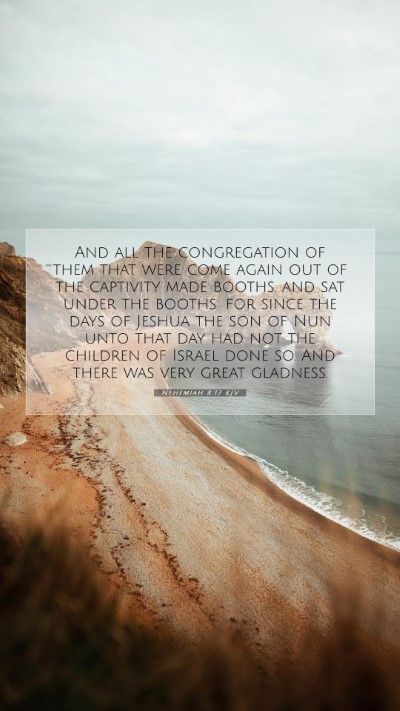Old Testament
Genesis Exodus Leviticus Numbers Deuteronomy Joshua Judges Ruth 1 Samuel 2 Samuel 1 Kings 2 Kings 1 Chronicles 2 Chronicles Ezra Nehemiah Esther Job Psalms Proverbs Ecclesiastes Song of Solomon Isaiah Jeremiah Lamentations Ezekiel Daniel Hosea Joel Amos Obadiah Jonah Micah Nahum Habakkuk Zephaniah Haggai Zechariah MalachiNehemiah 8:17 Meaning
What is the meaning of Nehemiah 8:17?
And all the congregation of them that were come again out of the captivity made booths, and sat under the booths: for since the days of Jeshua the son of Nun unto that day had not the children of Israel done so. And there was very great gladness.
Nehemiah 8:17 Bible Verse Meaning
Understanding Nehemiah 8:17
Nehemiah 8:17 states:
"And all the congregation of them that were come again out of the captivity made booths, and sat under the booths: for since the days of Joshua the son of Nun unto that day had not the children of Israel done so. And there was very great gladness."
Overview of Nehemiah 8:17
This verse encapsulates a significant moment in the history of the Israelites, portraying their joyous return from exile and their dedication to God's commandments. The act of constructing booths symbolizes their commitment to remembering their heritage and God's provision.
Key Insights from Commentaries
-
Matthew Henry's Commentary:
Henry emphasizes the joy and obedience of the people in returning to obey God's law after a long period of neglect. Their act of making booths reflects an important celebration - the Feast of Tabernacles, which serves to remind them of their wandering in the wilderness and God's guidance during that time.
-
Albert Barnes' Notes:
Barnes notes that this was a revival of a commandment that had been neglected for many years. He highlights the importance of remembering past events and God's faithfulness, which fosters communal solidarity and spiritual renewal. He suggests that the act of sitting under the booths provided a tangible connection to their historical identity as God’s people.
-
Adam Clarke's Commentary:
Clarke provides a socio-historical context, explaining that these booths represent temporary dwellings, symbolizing the Israelites' dependence on God and their journey from bondage to freedom. He further underscores the collective joy and fulfillment experienced by the people, suggesting that such earthly celebrations lead to a deeper understanding of divine grace.
Spiritual Meaning
Nehemiah 8:17 reflects the themes of restoration and remembrance in the lives of believers. The act of creating booths can be seen as a tangible expression of gratitude, aligning with the biblical call to celebrate God’s faithfulness through physical acts of worship.
Application and Relevance
For modern readers, this verse serves as a reminder to participate in celebrations of faith and community. Just as the Israelites gathered in joy, Christians today are called to engage in Bible study groups, online Bible study, or various Bible study resources to deepen their understanding of scripture.
- Planning a Bible study lesson focused on communal worship.
- Exploring the historical context of Bible verses related to worship practices.
- Applying the meaning of Bible verses to create a personal worship experience.
Related Scripture References
- Leviticus 23:34 - The command to celebrate the Feast of Tabernacles.
- Ezra 3:4 - The establishment of the Feast of Tabernacles after the exile.
- Psalm 118:24 - "This is the day that the Lord has made; let us rejoice and be glad in it."
Conclusion
In summary, Nehemiah 8:17 serves both as a historical account and a piece of spiritual encouragement. It invites believers to reflect on the joy of obedience, the significance of communal worship, and the ongoing relevance of God's directives in their lives.


